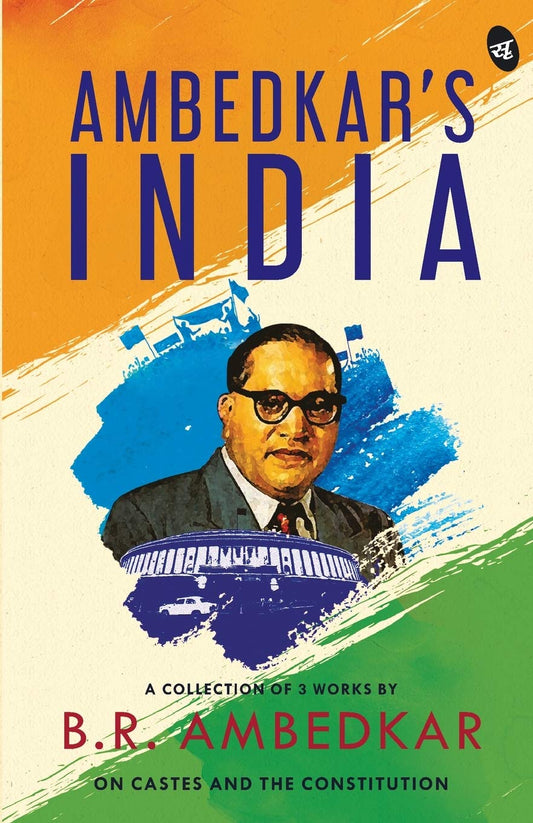When you walk into a bookstore, or scroll through an online catalog, what’s the first thing that catches your eye? Often, it's the title. A book title has the power to grab attention, spark curiosity, and even convince you to pick up a book you’ve never heard of before.
But have you ever stopped to wonder why some titles draw you in while others leave you indifferent? There’s a psychology at play, and understanding it can deepen your connection to the books you read and help you make more thoughtful reading choices.
In this blog post, we’ll delve into the psychology behind book titles—exploring how they influence our decision-making, evoke emotions, and shape our expectations about the content inside.
1. The Power of Curiosity: Titles That Spark Questions
Humans are naturally curious creatures. We want to know what happens next or how something works. This curiosity is exactly why some book titles are so effective. A title that evokes questions or presents a mystery invites us to explore further. The human brain is wired to seek answers to open-ended questions, and book titles that tap into this instinct can draw readers in.
Take The Girl on the Train by Paula Hawkins as an example. The title is simple yet intriguing, leaving you wondering who the girl is, why she’s on the train, and what role the train plays in the story. It doesn’t give away much, but it creates a sense of mystery that compels readers to pick it up.
Why it matters: Titles that provoke curiosity tap into your need to know more, which makes you more likely to reach for the book. By triggering questions, a title can lead to deeper engagement and ultimately a desire to read the entire story to satisfy that curiosity.
2. Emotional Triggers: Titles That Stir Feelings
Books often evoke strong emotions, and their titles are no exception. A well-chosen title can tap into specific emotional responses—whether it’s a feeling of nostalgia, empathy, joy, or intrigue. For example, titles like The Fault in Our Stars by John Green or A Man Called Ove by Fredrik Backman convey an emotional connection even before you read a single page.
The title The Fault in Our Stars is poignant and emotional, triggering feelings of heartbreak, love, and loss. Similarly, A Man Called Ove is warm and bittersweet, hinting at themes of loneliness, love, and redemption. Both titles evoke an emotional response, making them appealing to readers who are seeking stories that resonate on a deeper, emotional level.
Why it matters: Emotionally-driven titles connect with readers on a personal level. People often choose books based on how they want to feel—whether they’re seeking an emotional journey, a thrilling experience, or an uplifting read. A title that evokes the right emotions can draw in readers looking for that type of experience.
3. Relatability and Familiarity: Titles That Reflect Personal Experience
One of the most powerful psychological triggers behind a book title is its ability to tap into personal experiences or universal truths. Titles that reflect relatable situations or familiar concepts often resonate deeply with readers, prompting them to pick up the book and see if their own experiences are mirrored within its pages.
For example, titles like Eat, Pray, Love by Elizabeth Gilbert or The Happiness Project by Gretchen Rubin tap into the universal human quest for self-discovery, inner peace, and happiness. These titles resonate because they address common desires and challenges that many readers can relate to in their own lives.
Why it matters: Readers are naturally drawn to stories that feel familiar, as they’re more likely to connect with content that reflects their thoughts, emotions, and struggles. A title that speaks to these shared experiences can evoke a sense of “this book is for me,” which makes it irresistible to pick up.
4. The Use of Alliteration and Rhythm: Titles That Are Easy to Remember
One psychological trick that makes certain book titles stand out is their rhythm or use of alliteration. Titles that are catchy, rhythmic, or have a pleasing sound are easier to remember, which helps them stay in the reader’s mind. For instance, titles like Pride and Prejudice or The Secret Garden are memorable because they flow well, making it easier for readers to recall them later.
Alliteration—where the same consonant sounds are repeated—helps create a musicality that makes titles more pleasant to say and remember. Similarly, rhythmic or repetitive patterns make titles catchy, increasing their likelihood of sticking with the reader. Titles like Bridget Jones's Diary or Murder on the Orient Express have a certain bounce to them, which makes them stand out.
Why it matters: A catchy title is more likely to be remembered, shared, and talked about. If a book title is easy to recall, it increases the chances of it being recommended by others and sought after in bookstores or libraries.
5. Specificity vs. Ambiguity: The Balance Between Clarity and Mystery
Another psychological element of book titles is the balance between being specific and ambiguous. A specific title gives the reader an immediate sense of what the book is about, while an ambiguous title leaves much to the imagination. There’s a delicate balance between providing enough information to pique interest and leaving enough mystery to spark curiosity.
For example, titles like The Silent Patient by Alex Michaelides or The Road by Cormac McCarthy provide little direct explanation but promise an intriguing premise. On the other hand, titles like Sapiens: A Brief History of Humankind by Yuval Noah Harari or The Immortal Life of Henrietta Lacks provide clear indications of the subject matter, offering clarity to readers seeking specific information.
Why it matters: The type of title you choose can affect the audience you attract. Some readers prefer titles that indicate what the book is about, while others enjoy a title that leaves room for interpretation. Striking the right balance between clarity and mystery is key to finding the right audience for your book.
6. Genre-Specific Clues: Titles That Signal Genre Expectations
Certain book titles immediately signal the genre and tone of the book, helping readers decide whether it’s the right fit for their preferences. Titles like The Hunger Games, Harry Potter and the Sorcerer’s Stone, or The Shining give clear cues about their genres (dystopian, fantasy, horror) and what readers can expect in terms of style and mood.
For genre-savvy readers, a title can provide an instant understanding of the book’s contents. A fantasy title like The Name of the Wind might appeal to readers who love epic adventures, while a title like Gone Girl immediately signals a psychological thriller.
Why it matters: A well-chosen genre-specific title sets clear expectations for the reader. If the title fits the genre, it helps attract the right audience who’s looking for that particular type of story. This makes it easier for readers to find books that match their tastes.
Final Thoughts
The psychology behind book titles is a fascinating mix of emotional appeal, curiosity, rhythm, relatability, and clever marketing. Titles serve as a gateway into the world of the book, guiding readers toward stories that resonate with their needs, desires, and interests. Whether it’s sparking curiosity, evoking an emotional response, or providing familiarity, a good book title speaks directly to the reader’s psyche.
For authors, understanding the psychology behind book titles is essential in creating a title that attracts readers and accurately represents the story within. For readers, appreciating the psychological nuances behind titles can make you more aware of how book titles shape your reading choices.
The next time you choose a book, think about why the title drew you in. Was it the mystery? The emotion? The clarity or intrigue? The psychology behind it is working, and it’s all part of the magic of reading.
Book Title FAQ's
Why do some book titles grab attention?
They spark curiosity, emotions, or familiarity, making them more appealing.
How do book titles influence our choices?
They create expectations, stir emotions, and make a book feel relevant to us.
What makes a book title easy to remember?
Catchy words, rhythm, or intriguing phrasing help a title stick in your mind.
Do book titles affect popularity?
Absolutely! A great title attracts readers and boosts a book’s success.
Why do different genres have distinct title styles?
Thrillers use suspenseful titles, while fantasy often sounds grand and adventurous.
Can a bad title make a book less appealing?
Yes! A dull or unclear title can make readers overlook a great story.










